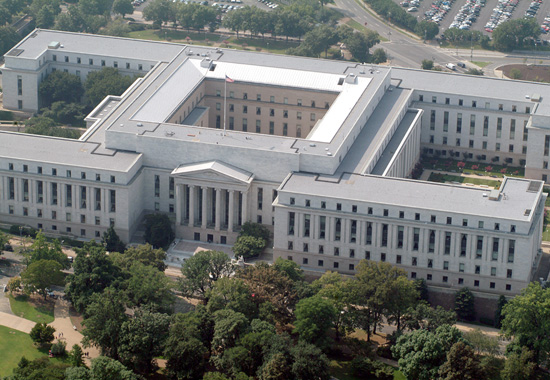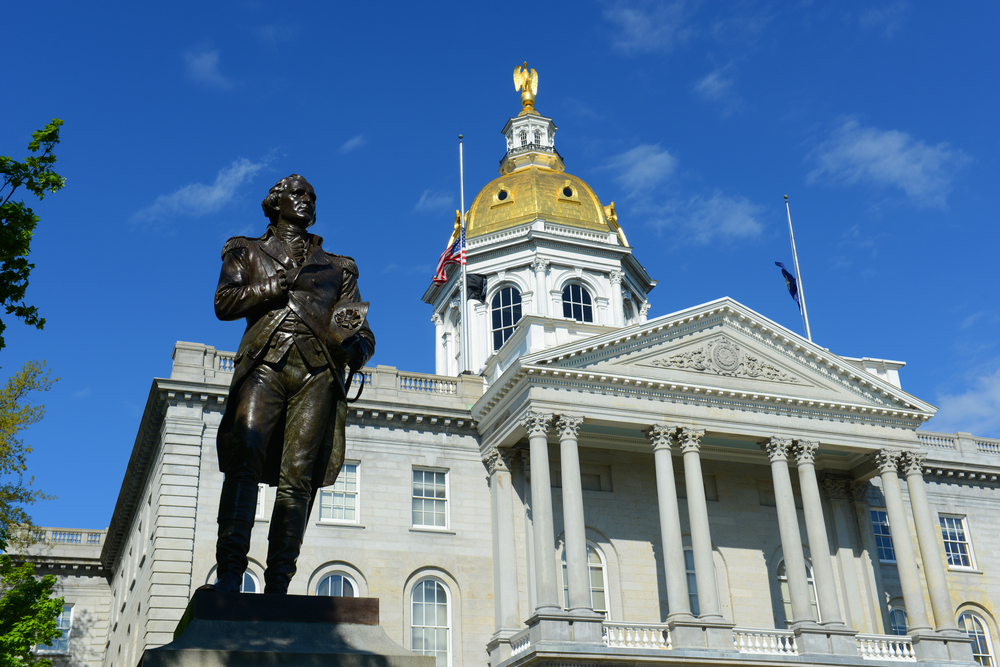The House Subcommittee on Crime, Terrorism, Homeland Security and Investigation held a hearing on 27 September to assess the future impact sports betting could have on the US after the repeal of the Professional and Amateur Sports Protection Act (PASPA).
The hearing, titled Post-PASPA: An Examination of Sports Betting in America, saw testimony from five prominent figures in the sports and gambling industry which included: Jocelyn Moore, Executive VP of Communications and Public Affairs at the NFL, Professor John Warren Kindt from the University of Illinois, Sara Slane, VP of Public Affairs for the American Gaming Association (AGA), Jon Bruning a Counselor from the Coalition to Stop Online Gambling and Becky Harris, Chair of the Nevada Gaming Control Board (NVGC).
Members of the subcommittee included representatives from 17 different states, of which only one has legalized sports betting. The state that did legalize sports betting, Pennsylvania has yet to launch sports betting and is currently only accepting licence applications.
Moore presented a negative view on the impact sports betting could have across the States, with a specific focus on the integrity of sporting events across the country. Moore’s testimony also made it clear that the NFL is urging Congress to implement “statutory and regulatory standards for legalized sports betting in the United States,” supporting the legislative framework proposed by Senator Chuck Schumer last month.
Moore went on to propose that if federal legislation were put into place, the following should be achieved: it should establish key criteria for state regulatory entities, enforce an age limit on sports betting, require the use of official league data, preclude risky betting figures, prohibit insider and high-risk sports wagering and include responsible gambling measures.
Moore added that federal legislation could be enforced by requiring that operators be licensed and open to auditing. Another recommendation is to facilitate the ease of information sharing between sports leagues, operators and law enforcement and that the federal legislation actively combats domestic and international money laundering, tax evasion and corruption.
Special mention should be given to the comment on “official league data”. This indicates that the NFL is interested in securing data rights, which would then allow the league to sell sports data to sports betting operators. This sports data is essential as it is used to formulate betting odds.
Selling data rights would be an alternative to the inclusion of integrity fees, which became a hotly debated topic almost immediately following the PASPA repeal.
Regarding league data, Moore said: “Betting outcomes are increasingly determined on granular details like yardage gained, or the number of sacks by a defense, or strikes by a pitcher in baseball.
“Therefore, an essential component of consumer protection is a requirement that the information used to settle these wagers is correct and timely, something that can only come from official data provided by the sports leagues themselves.”
However, not everyone is thrilled about federal legislation
Throughout her testimony, Slane highlighted several key principles that will ensure sports betting is safe, legal and successful. These principles are: an emphasis on promoting responsible gaming and advertising, working to protecting sports integrity, discouraging the implementation of legislative preferences for specific business interests, to empower state and tribal regulation and to put consumers first.
Special reference was made to the Tribal gaming community as “one of the most strictly regulated industries in America” highlighting that there are over “4000 gaming regulators with budgets exceeding $1.3bn that oversee the gaming industry.”
Slane went on to use Nevada as a case study, indicating that sports leagues and regulators can work with operators to protect the integrity of sports and betting while curbing unregulated and illegal gambling.
Throughout her testimony, Slane spoke about cracking down on illegal gambling —which has been rampant across the US— by “bringing betting activity into a legal market, under state and tribal regulatory oversight,” there will be an increase in “transparency, game integrity and consumer protections, while supporting jobs and generating tax revenues.”
“Just as Congress has refrained from regulating lotteries, slot machines, table games, and other gambling products, it should leave sports betting oversight to the states and tribes that are closest to the market,” continued Slane. “With such robust and rigorous regulatory oversight at both the state and federal levels, there is no need to overcomplicate or interfere with a system that is already working.”
In her testimony, Slane also stated that illegal betting operators usually benefit from lower overheads or tax and regulatory compliance outlays. This gives them a competitive advantage – allowing for higher profit margins, while also offering consumers better-paying odds.
Slane added: “If our shared goal is to stamp out illegal sports betting operators, it is imperative that policymakers recognize these dynamics and establish policies that allow legal, regulated sportsbooks to present a compelling alternative to consumers.”
This view was echoed by Harris from the NVGC, warning against a federal regulation for sports betting.
“I don’t think that right now is the time for any kind of federal engagement with regard to gambling,” said Chairwoman Harris. “States do a great job in every area including sports betting and we’ve just begun to see the roll out in other states. Nevada has a comprehensive regulatory structure that has been refined over decades, and we have a lot of integrity in our process.”
On the topic of sports integrity, Harris referenced some of the biggest scandals in sports history and highlighted that match-fixing is most likely to occur in markets “where there is no regulatory responsibility, where monitoring and betting patterns is of no concern, and where line movements may not matter.”
Harris also stated: “It is imperative that jurisdictions embarking on legalized sports betting understand the impact tax rates and fee structures have both on a legalized regulated sports betting market and the illegal sports betting market.
“To foster a robust and healthy legal sports betting market, state tax structures must be reasonable.”
This can already be seen in states like Pennsylvania, where it costs $10m in order to apply for a sports betting license. As it stands, only three establishments have submitted applications.
Harris also touched on the topics of geofencing, real-time data sharing, using official data sources and the prospect of sports leagues attempting to monetize sports betting.
It is now up to Congress to deliberate and decide where to go from here when it comes to the regulation of sports betting across the US. With so many contrasting opinions and a myriad of different aspects to be considered, it’s quite clear that this is something that’s very much up in the air.
The entire hearing was streamed on YouTube and can be viewed below.






